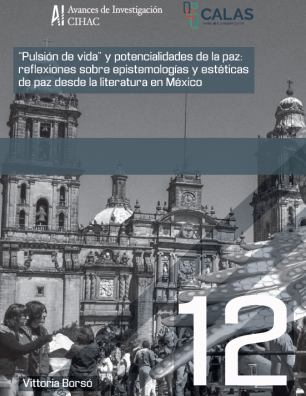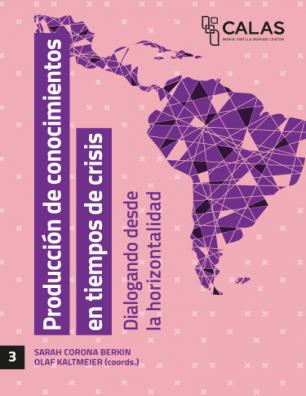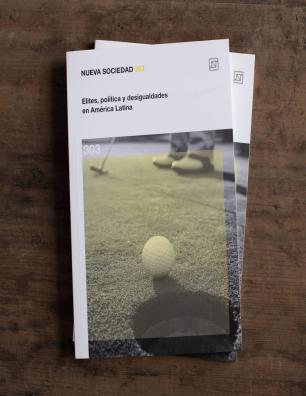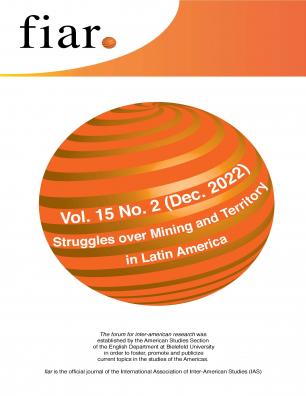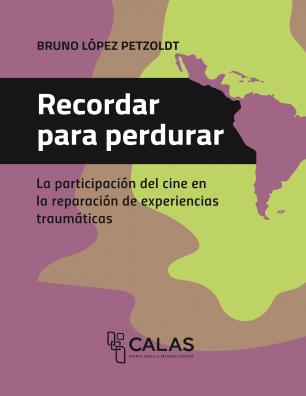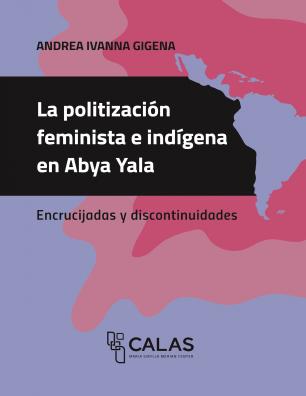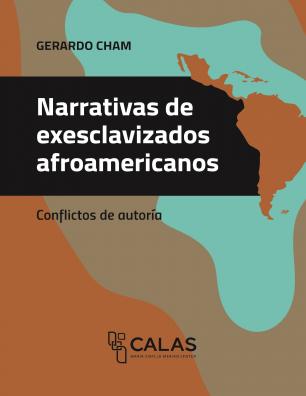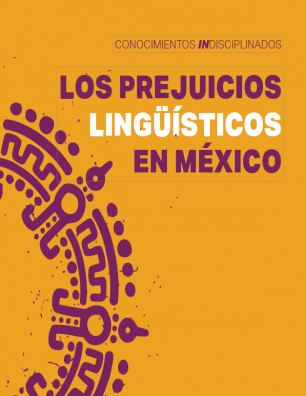Publications
Vitaminas y minerales en la batalla contra la COVID-19
El SARS-CoV-2 es el virus responsable de la actual pandemia por COVID-19. Tener más de 65 años, ser hombre y presentar obesidad son algunos de los factores de riesgo de infección y de desarrollar enfermedad grave. Además, tener una alimentación no saludable que predispone a una deficiencia de vitaminas y minerales también tiene un papel decisivo en la respuesta inmune al SARS-CoV-2.
Descargar PDF: Vitaminas y minerales en la batalla contra la COVID-19
Qué dicen las emociones de nuestra forma de ser y habitar el mundo
Las emociones han sido estudiadas desde diversas disciplinas como la medicina y la psicología, y generalmente se considera que son un asunto meramente individual cuyas causas son determinadas por razones biológicas de la especie humana. No obstante, las emociones también son asunto de las ciencias sociales.
Descargar PDF: Qué dicen las emociones de nuestra forma de ser y habitar el mundo
La lucha por una lactancia materna efectiva
Las madres mexicanas viven en una constante batalla cultural respecto a la manera en que amamantan a sus bebés recién nacidos y posteriormente, lactantes. Comienza desde el momento en que reciben el diagnóstico positivo de embarazo, donde los mitos comienzan a rodear esta etapa.
Los prejuicios lingüísticos en México
En un país como México, donde se hablan 68 lenguas indígenas y muchas variantes del español, se siguen reproduciendo prejuicios lingüísticos tanto en el contexto educativo e institucional como en las prácticas cotidianas asociadas al uso del lenguaje. Pese a tanta variedad lingüística, todavía se tiene la idea de que la única forma correcta y válida de hablar y producir conocimientos es a través del español “estándar”, representado por las gramáticas normativas.
La comunicación pública de la ciencia en México
En la actualidad a la Comunicación Pública de la Ciencia (CPC) se le asocia con diversas actividades comunicativas relacionadas con la divulgación, la implementación y la construcción conjunta de conocimiento en el que participan los sectores académicos, las instituciones públicas y privadas, así como diversos sectores sociales. Aunque no siempre ha funcionado así, ha evolucionado a medida que el panorama científico, social, político y cultural lo hacen.
Descargar PDF: La comunicación pública de la ciencia en México
"Pulsión de vida” y potencialidades de la paz: reflexiones sobre epistemologías y estéticas de paz desde la literatura en México
Un concepto de paz que no esté formulado de manera heterónoma, es decir, que no dependa de la violencia, necesita una crítica tajante de la ontoteología, entendida como las éticas occidentales incuestionables y la negatividad que fundan las nociones de política y biopolítica. Debido a la violencia en la historia de la humanidad, encontramos en la estética literaria tanto el desobramiento de la violencia como signos de pulsión de vida que emergen en medio de esta, los cuales permiten experimentar las potencialidades del vivir y el convivir. Con respecto al siglo XXI en México, estéticas y na
Producción de conocimientos en tiempos de crisis: dialogando desde la horizontalidad
¿Cómo generamos conocimiento para afrontar los problemas que hoy nos aquejan? Para responder esta pregunta, este libro explora elementos dialógicos como la escucha, el reconocimiento mutuo, la participación igualitaria en las comunidades científicas o la representación del otro, sus voces y las nuestras. Se reúnen diez contribuciones que formaron parte del congreso que titula a este libro, el cual fue un punto de encuentro entre jóvenes investigadores e investigadores consolidados y de cuyos diálogos pretenden servir como guía para trazar nuevas rutas.
Elites, política y desigualdades en América Latina
Los efectos de la pandemia de covid-19, junto con la vigencia política del progresismo y la pervivencia de la protesta social, han vuelto a subrayar la cuestión de las desigualdades y, con ella, la de las elites. Investigadoras e investigadores del Laboratorio de Conocimiento “Confrontando las desigualdades en América Latina: Perspectivas sobre riqueza y poder explorar estas dimensiones en el tema central del número 303 de la revista Nueva Sociedad, desde diferentes ángulos y perspectivas.
Índice:
FIAR Vol. 15.2 (Dec. 2022) Struggles over Mining and Territory in Latin America
The nexus between extractivist activities, mining conflicts and territory has become increasingly visible and discussed both in social movements and local struggles as well as in academic debates, especially in Latin America (Göbel y Ulloa 15).
Violencias y resistencias. América Latina entre la historia y la memoria
Historical studies of violent pasts in Latin America are intrinsically connected to memory studies and, more broadly, to memory politics and memorial cultures. Struggles to explain the construction of the present reflect how societies constantly seek to reinterpret their past, leading to strong political debates and conflicts. The question of how to deal with traumatic past experiences, often related to political violence, has become an issue of great social relevance in many Latin American countries.
La horizontalidad en las instituciones de producción de conocimiento: ¿Perspectiva o paradoja?
Every knowledge producer linked to an institution has experienced the imperatives that, through rules and hierarchies, channel the production of knowledge and limit the results generated there.
Recordar para perdurar. La participación del cine en la reparación de experiencias traumáticas
Film constitutes a powerful cultural tool that operates in multiple ways in the rescue of memories, as well as in the collective reparation and interdisciplinary conceptualization of traumatic experiences in communities devastated by systematic violations of their fundamental rights. It reviews and makes perceptible the prolongations of silenced or legitimized political violence both in the individual and in the social fabric disrupted by disturbing traces that disrupt existence and coexistence.
La politicación feminista e indígena en Abya Yala. Encrucijadas y discontinuidades
Based on dialogues and the collection of documentary material in seven countries of three sub-regions during a decade, Andrea Ivanna Gigena addresses in this essay the feminist politicization in Latin America and the Caribbean / Abya Yala in its relation with the women of the "Plural Indigenous Movement". She reflects on the historical conditions and genealogical constructions on which we are currently discussing or disputing the question of the subject of feminism.
Narrativas de exesclavizados afroamericanos. Conflictos de autoría
The central subject of the book is the conflict unleashed by the authorship of autobiographies written by people of African descent, enslaved in the Americas, during the 18th and 19th centuries. The book deals with the cases of three male and one female author whose testimonial narratives have been widely disseminated since they were written: Olaudah Equiano, Mary Prince, Juan Francisco Manzano and Mahomma Gardo Baquaqua.
Figuraciones de la violencia. Sociología de novelas latinoamericanas
The relationship between sociology and literature has always been characterized by conflicts and complementarities. Since the end of the 19th century, a new episteme on the knowledge of reality and the unrealities that configure it has been consolidated. Whether as a challenge to understand the "human comedy" or as a way of discovering the unconscious, commodity fetishism or the enigma of modernity, sociology and literature have walked the crossroads of the sociological imagination.
Los prejuicios lingüísticos en México
In a country as diverse as Mexico, where 68 indigenous languages and many variants of Spanish are spoken, linguistic prejudices continue to be reproduced both in the educational and institutional context and in everyday practices associated with language use. Despite so much linguistic variety, it is important to eradicate the belief that the only correct and valid way to speak and produce knowledge is through the use of "standard" Spanish represented by normative grammars.







